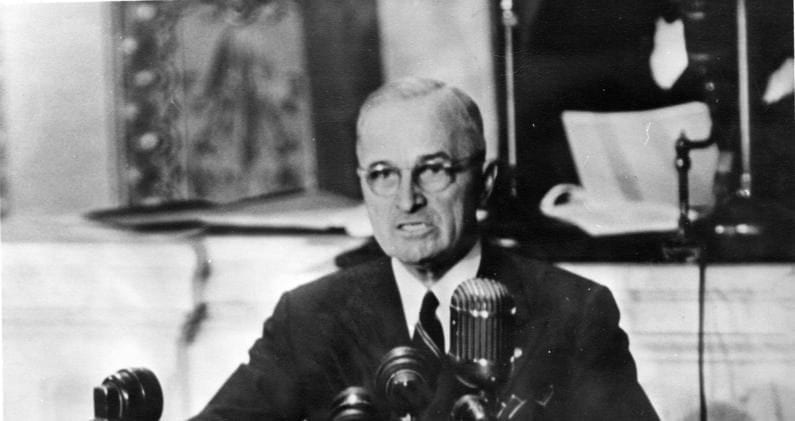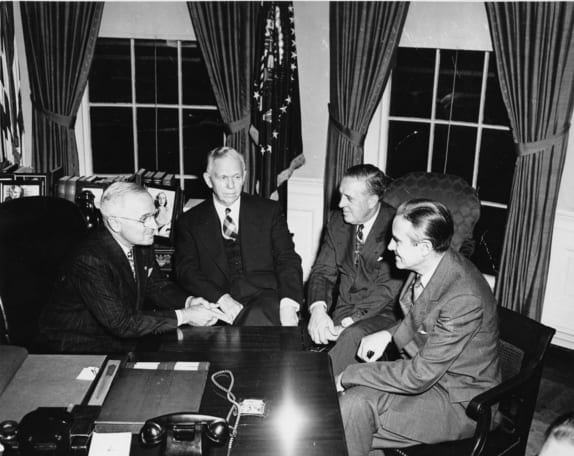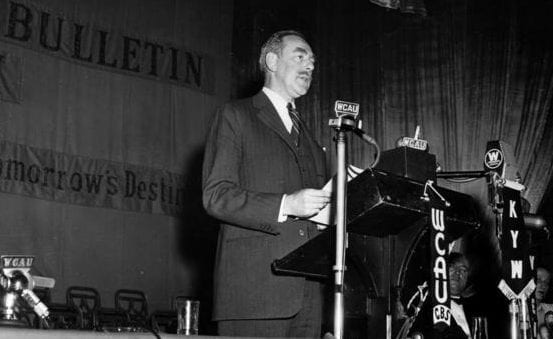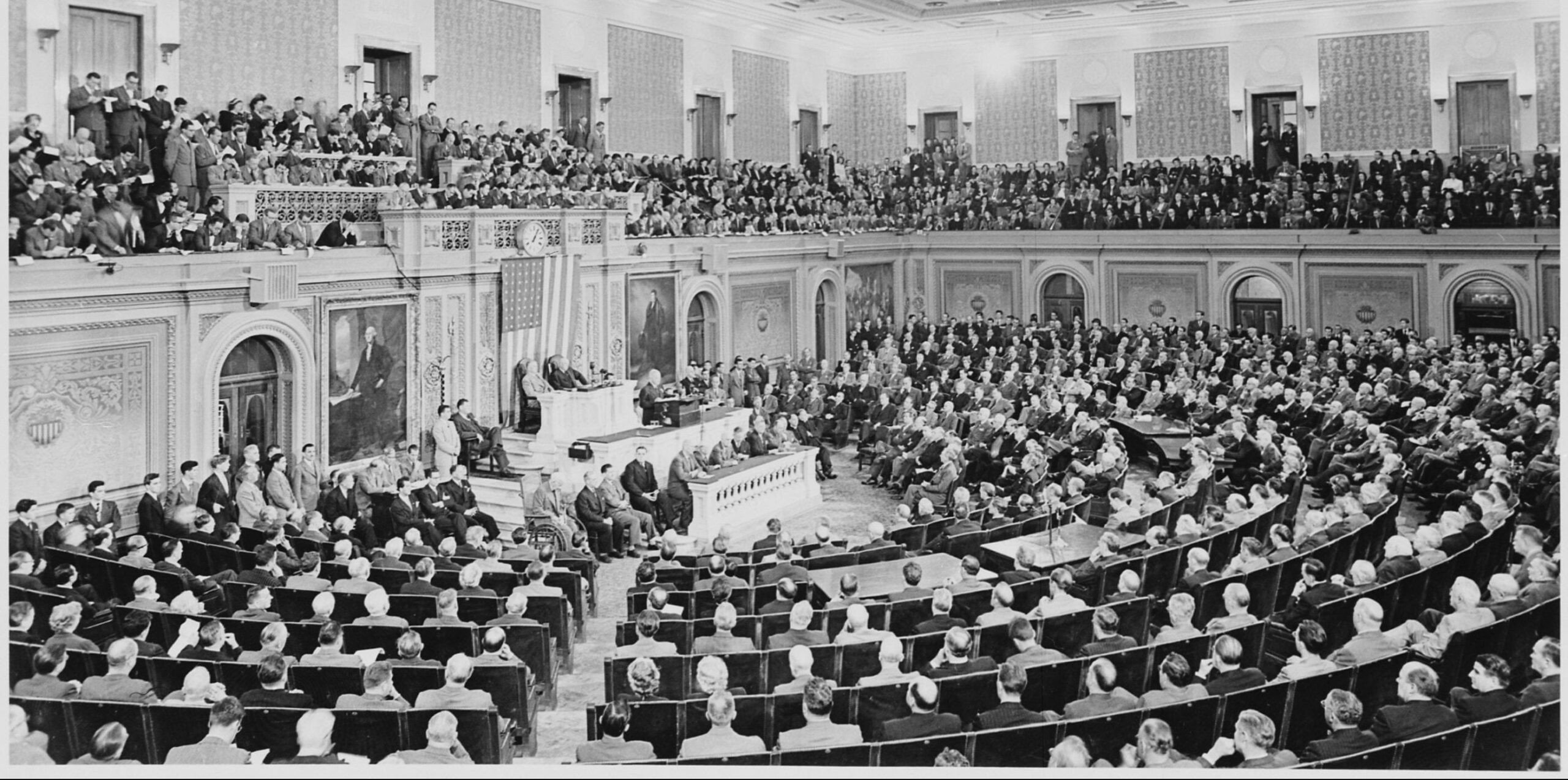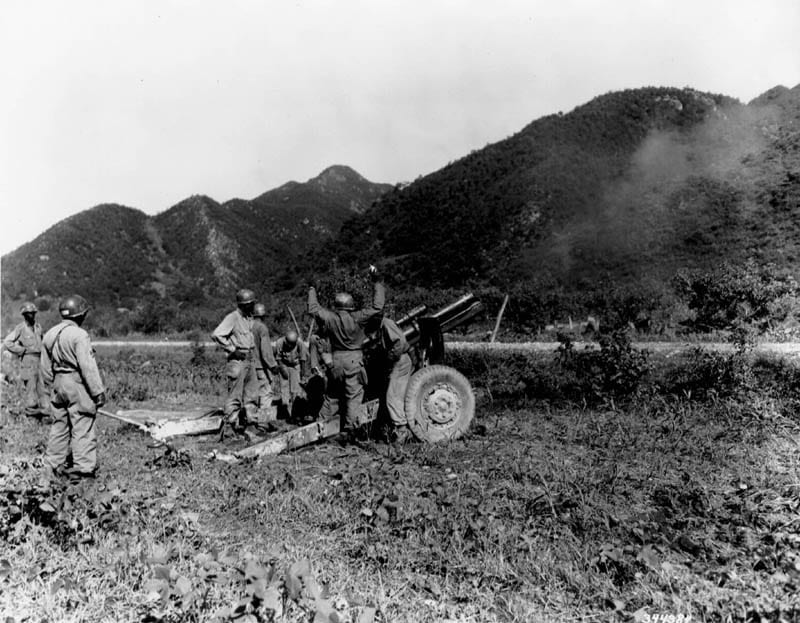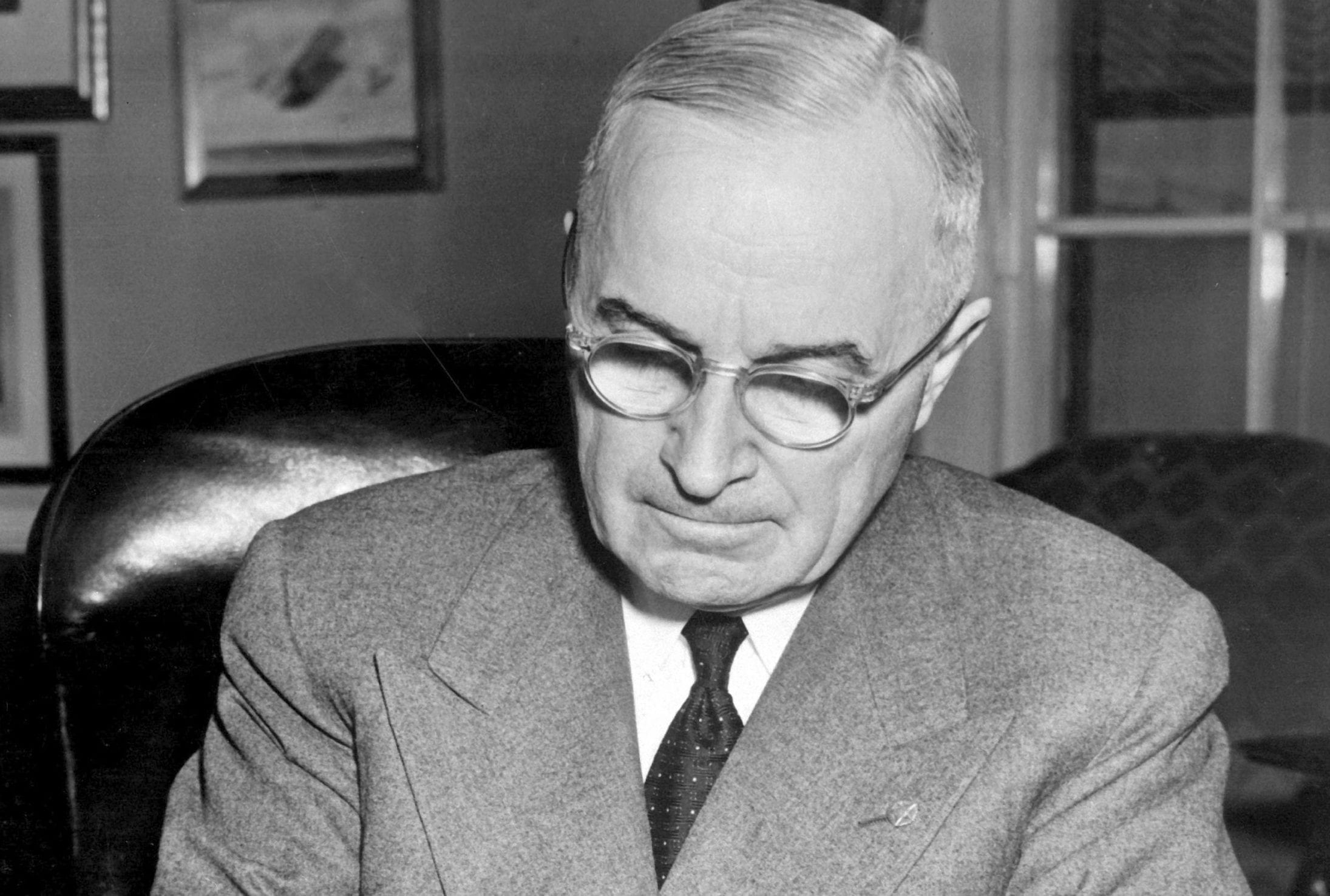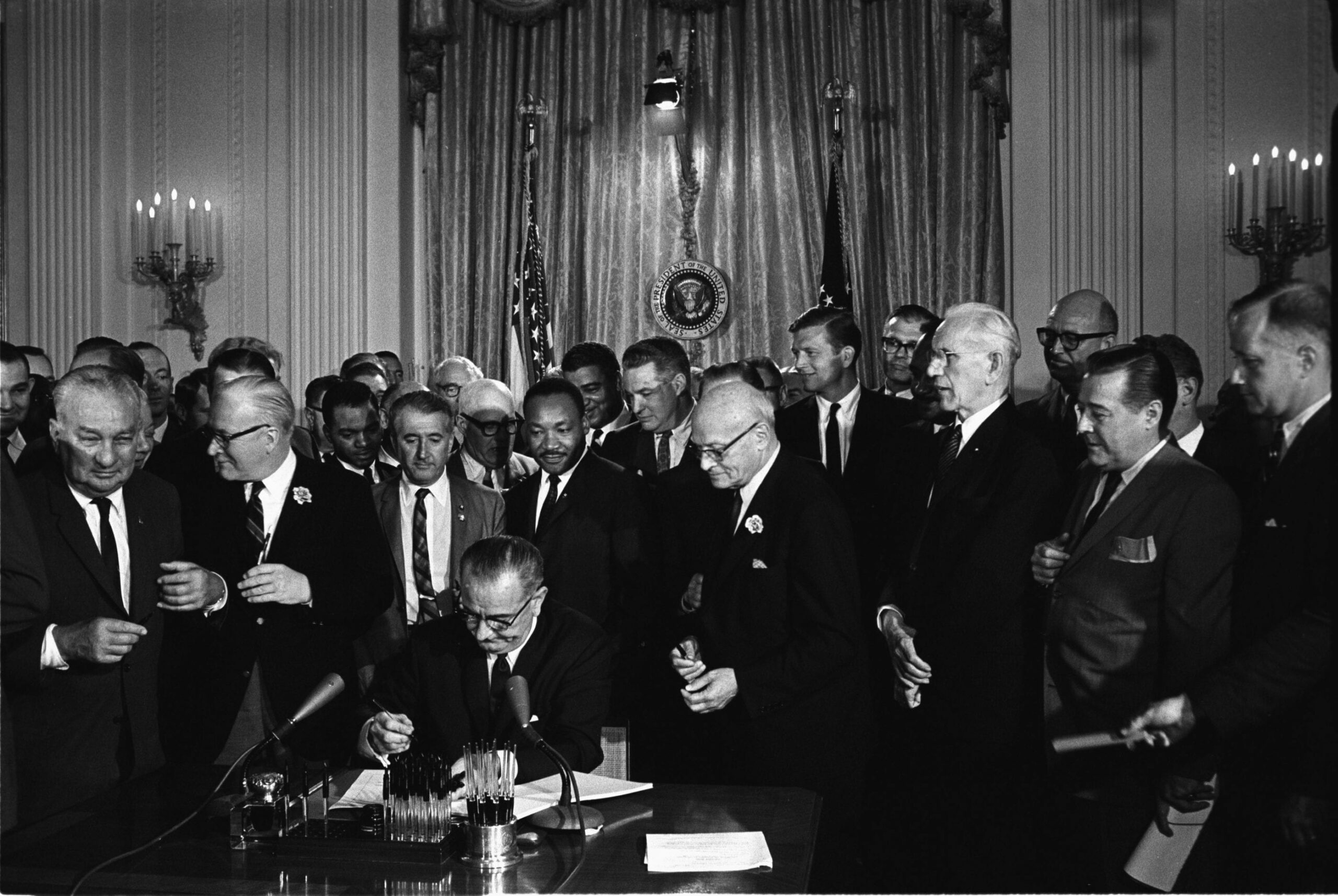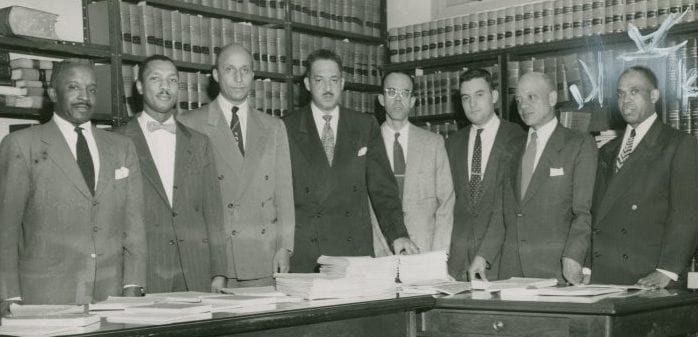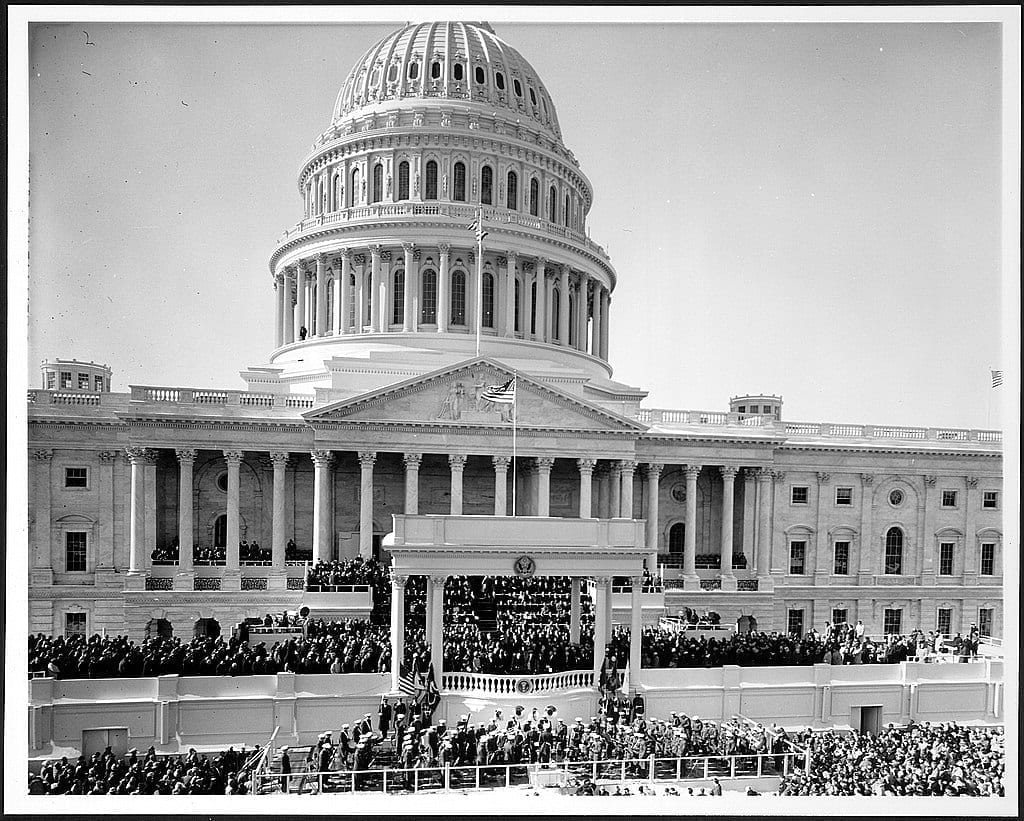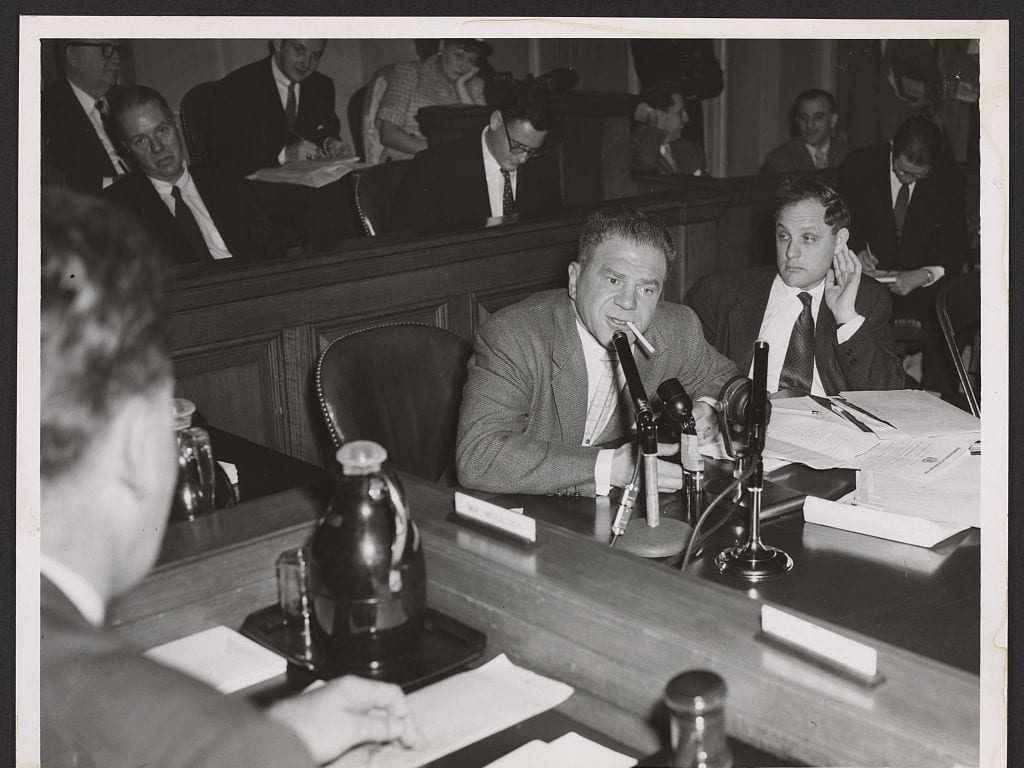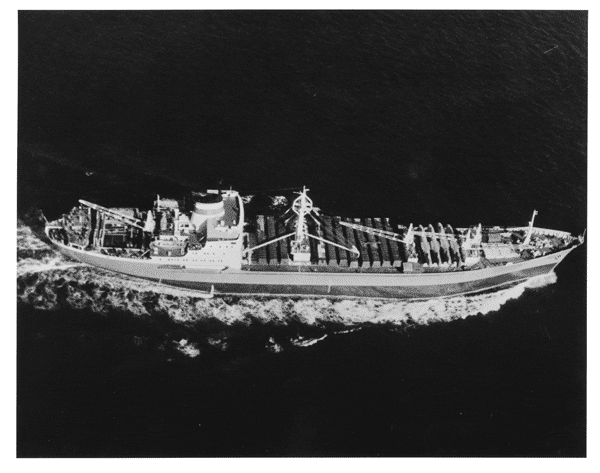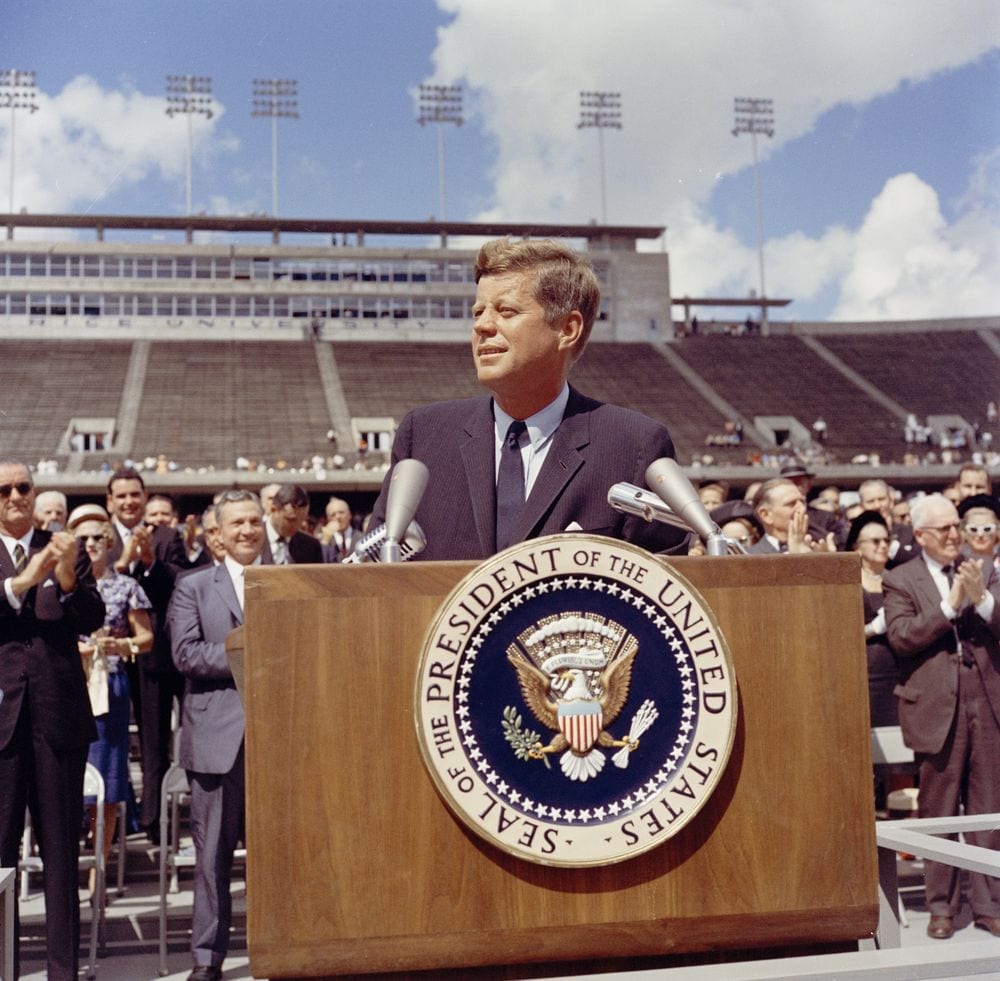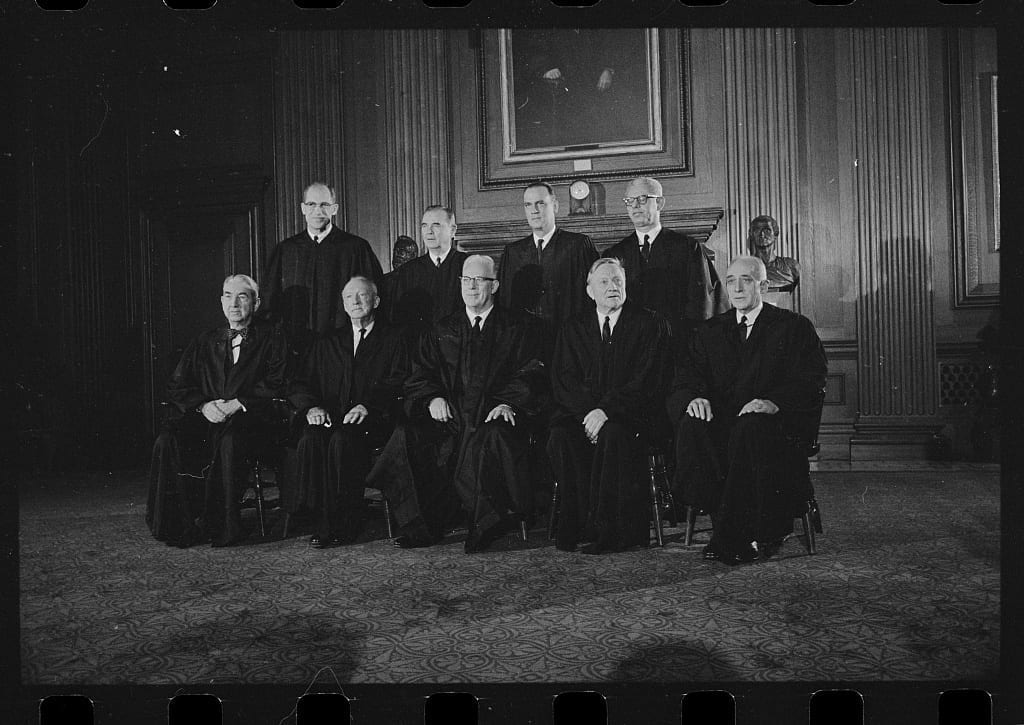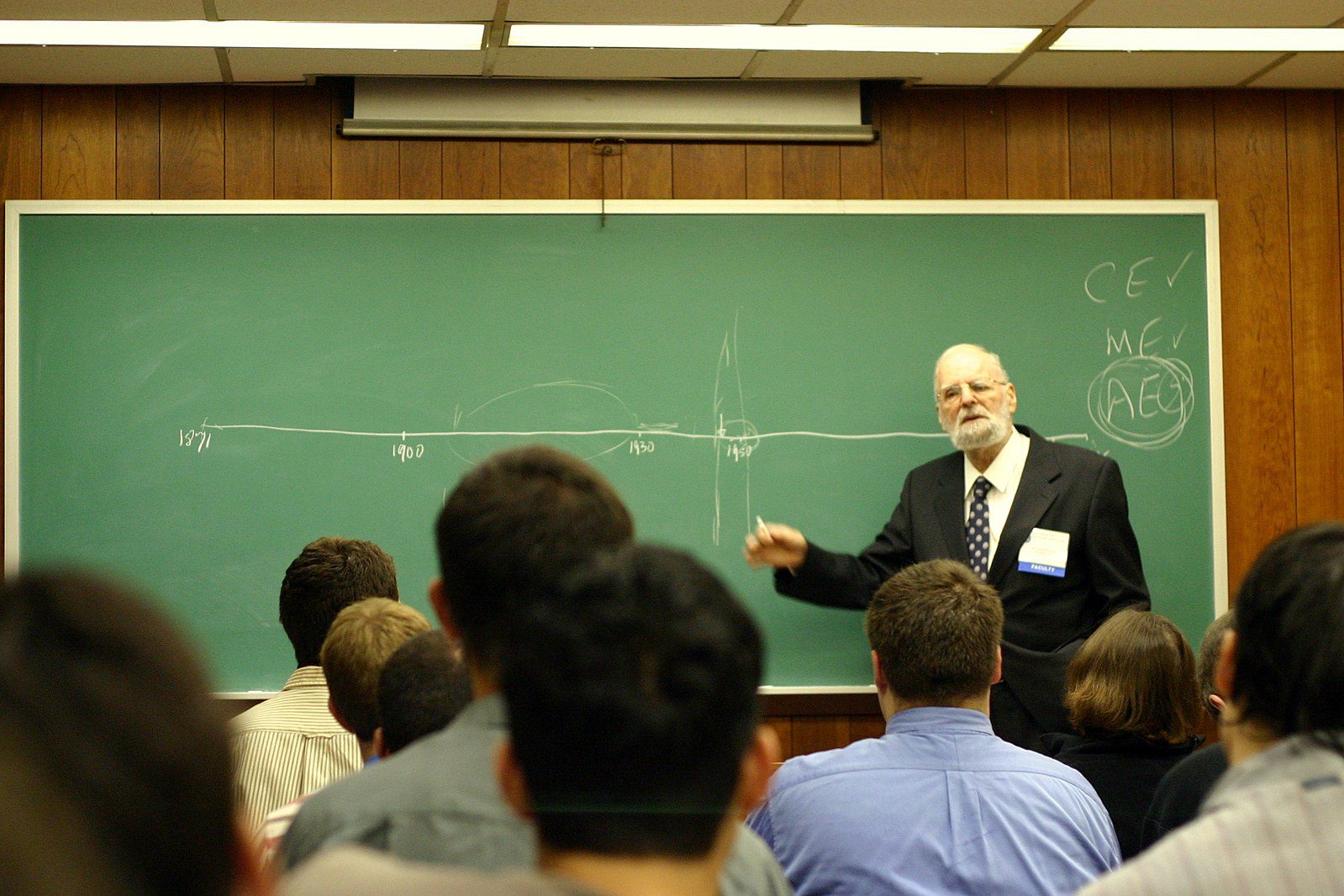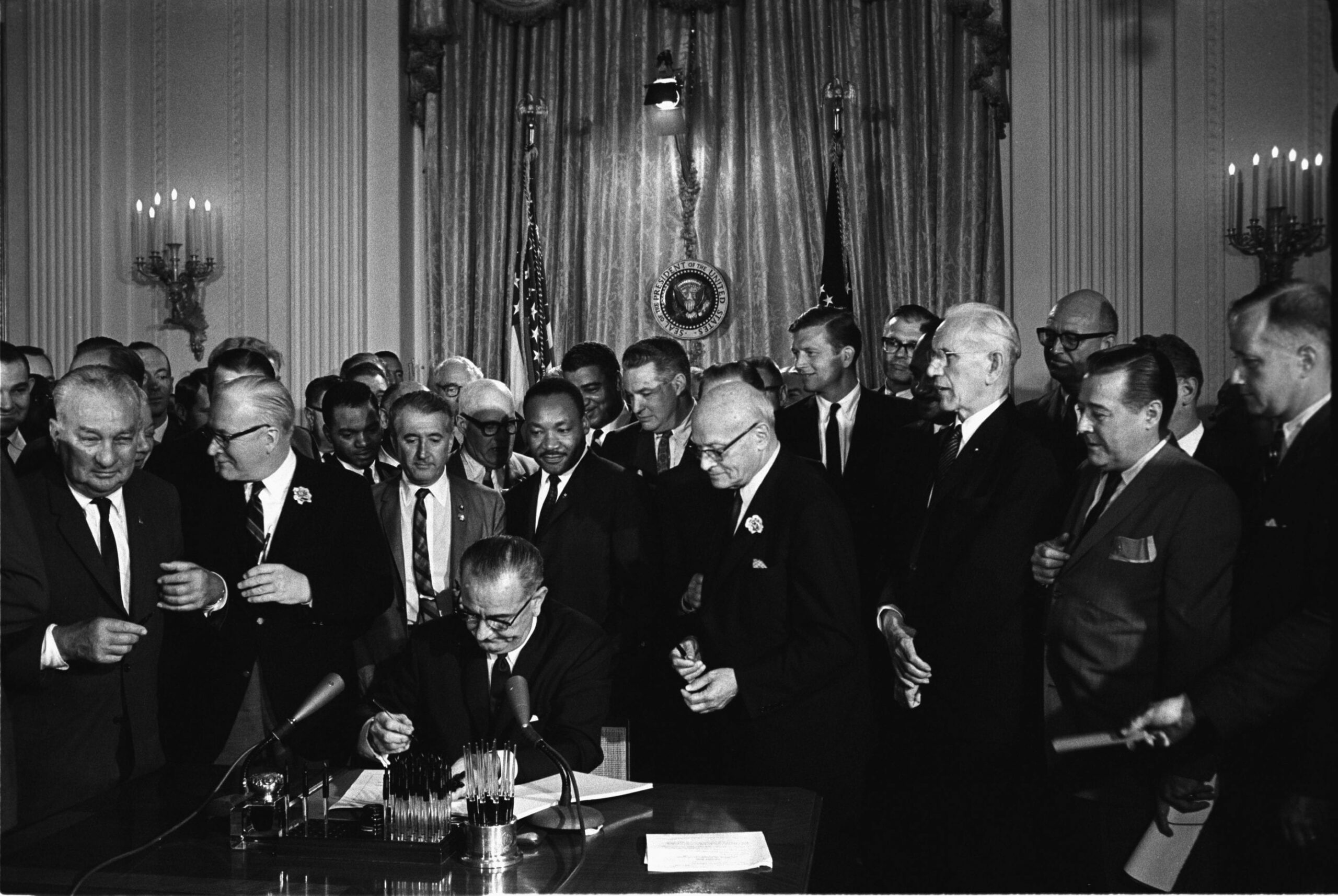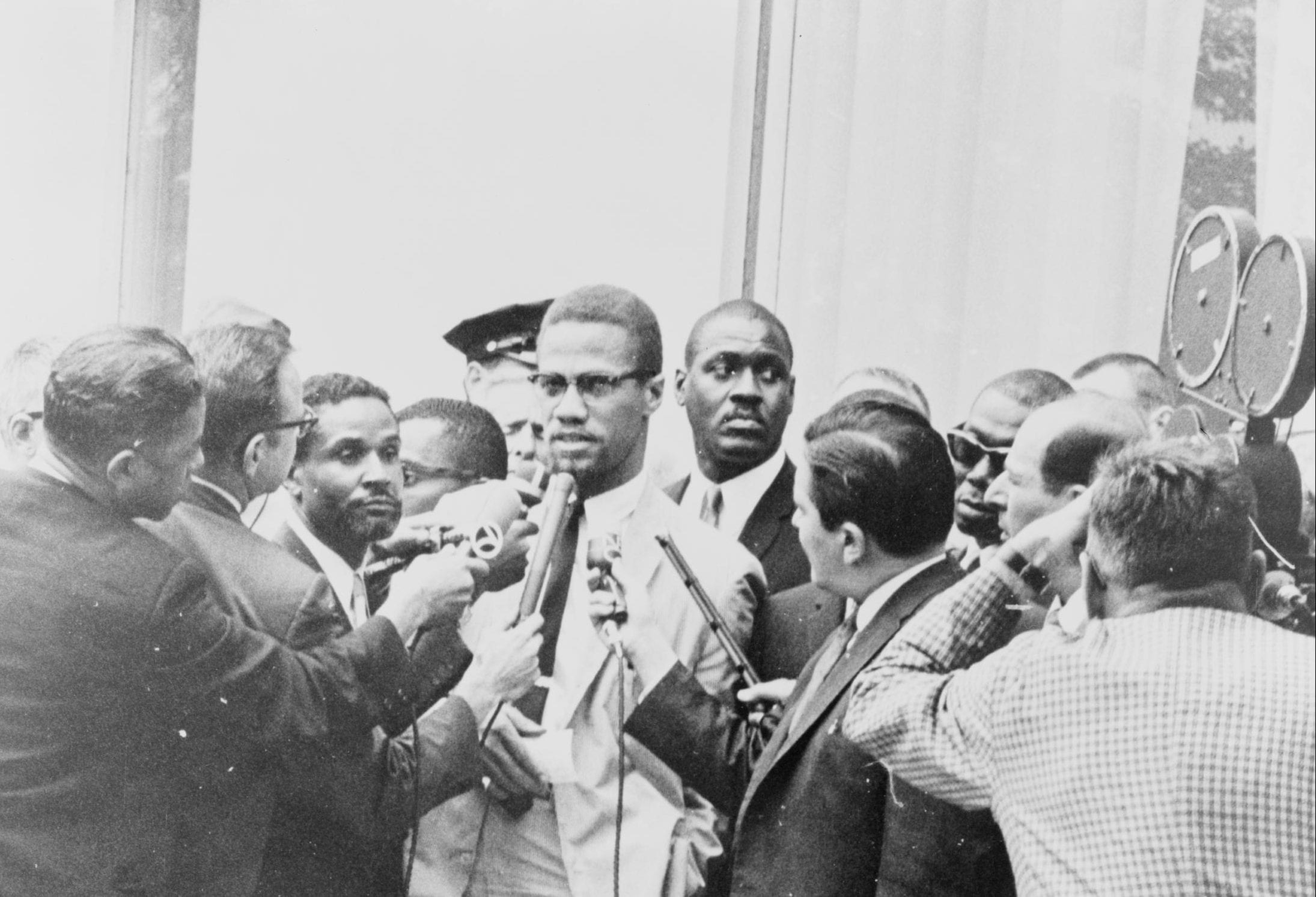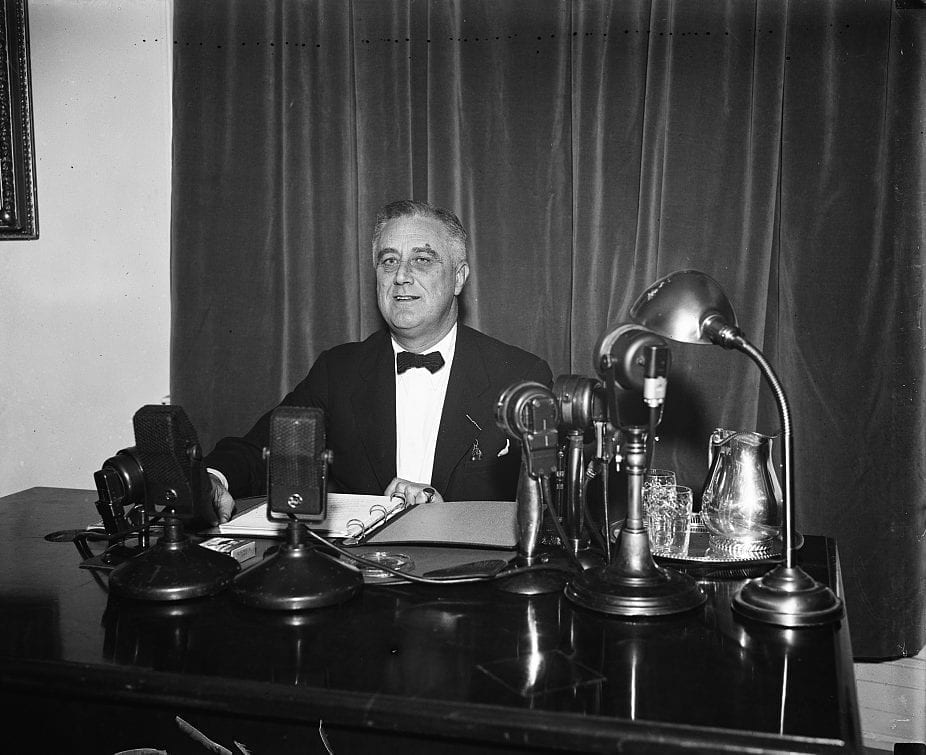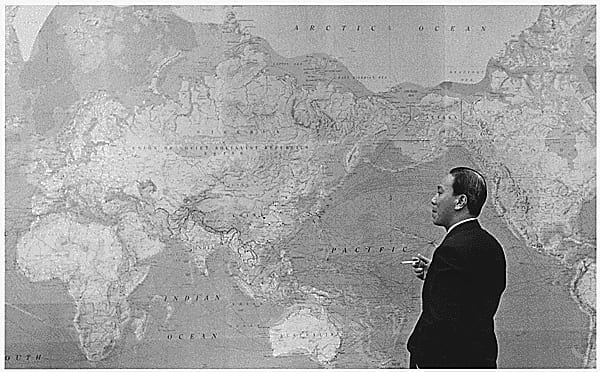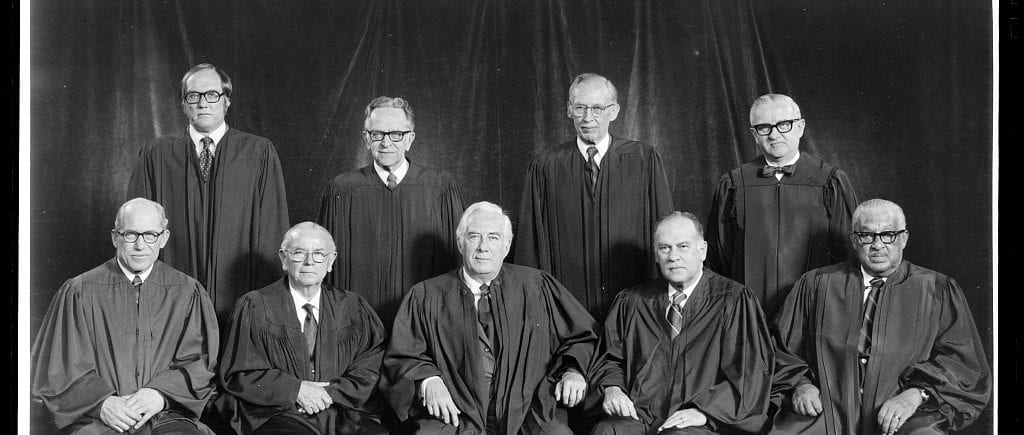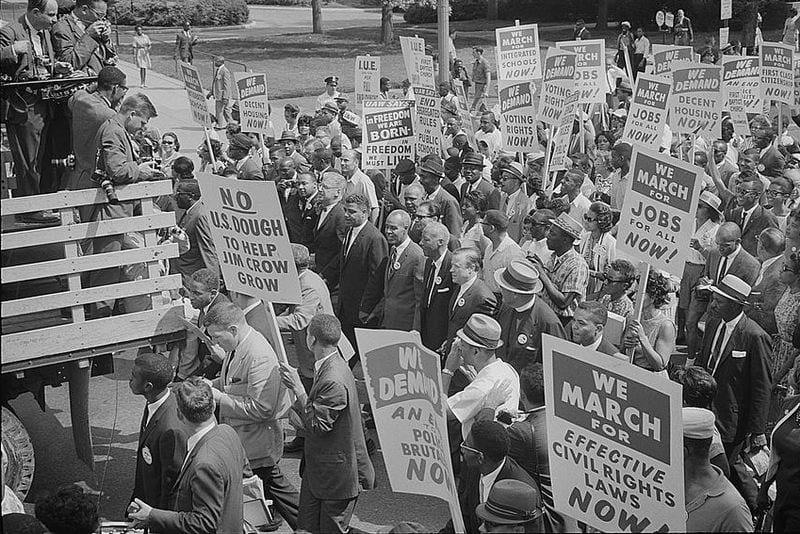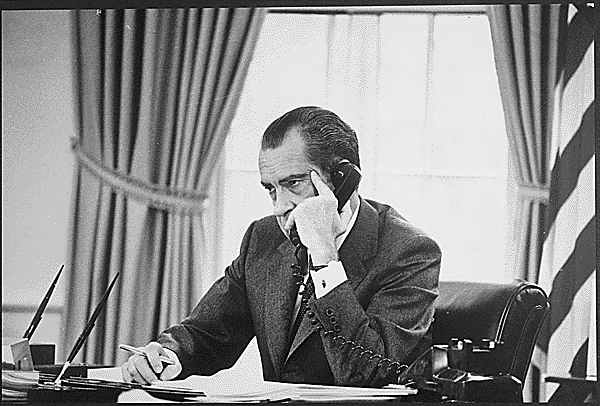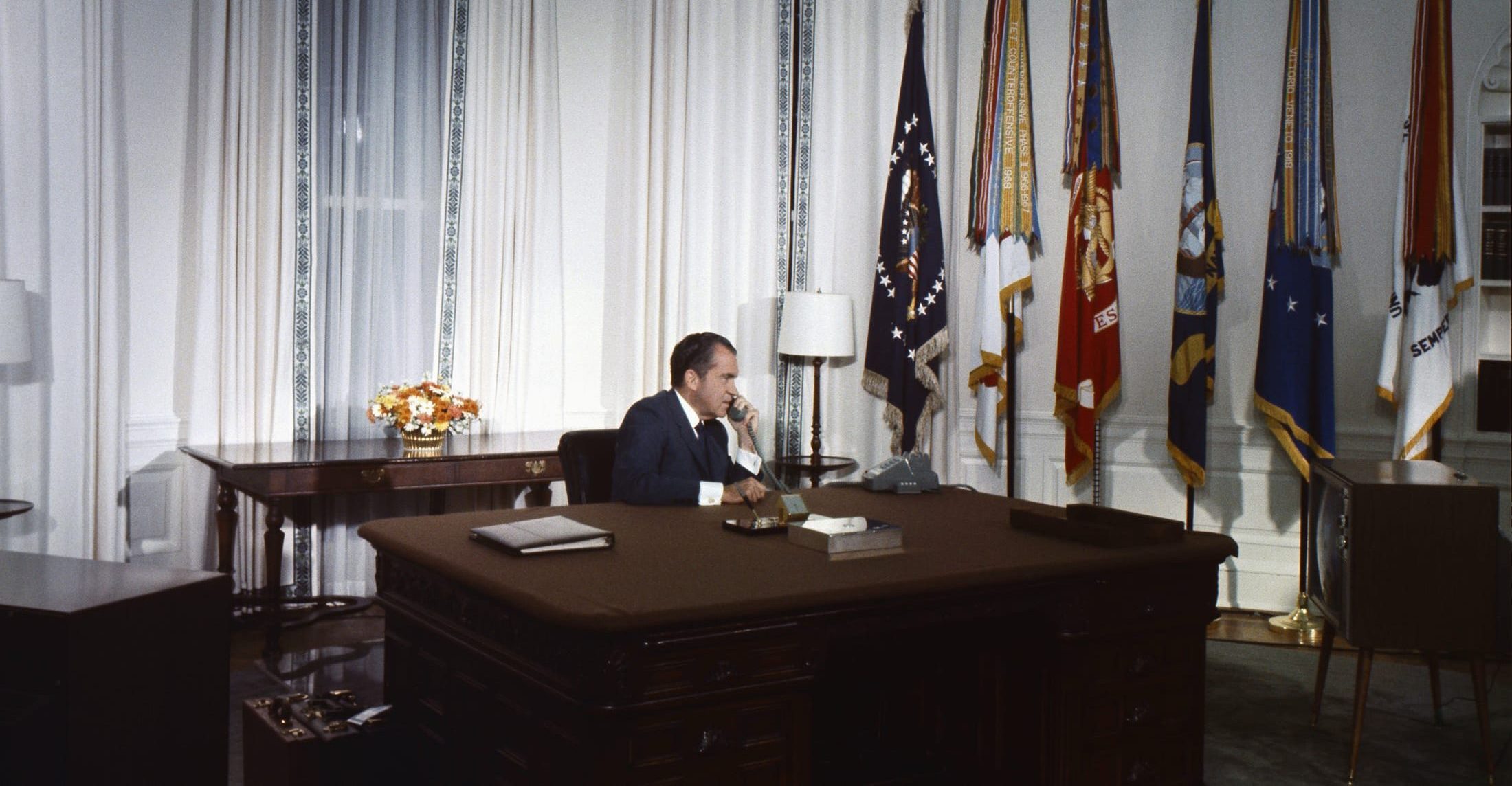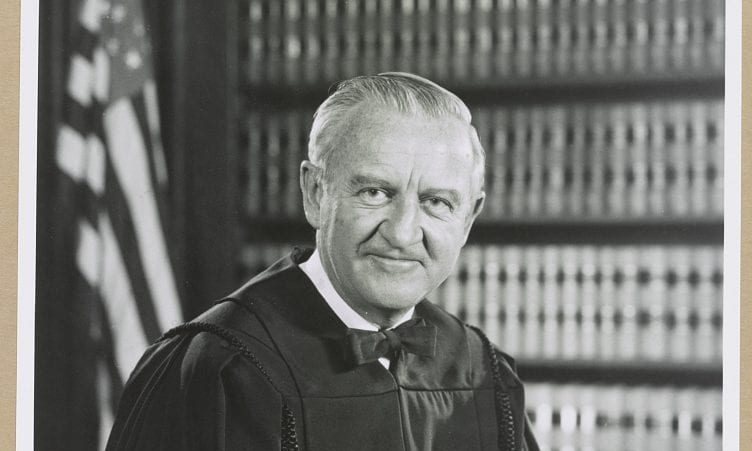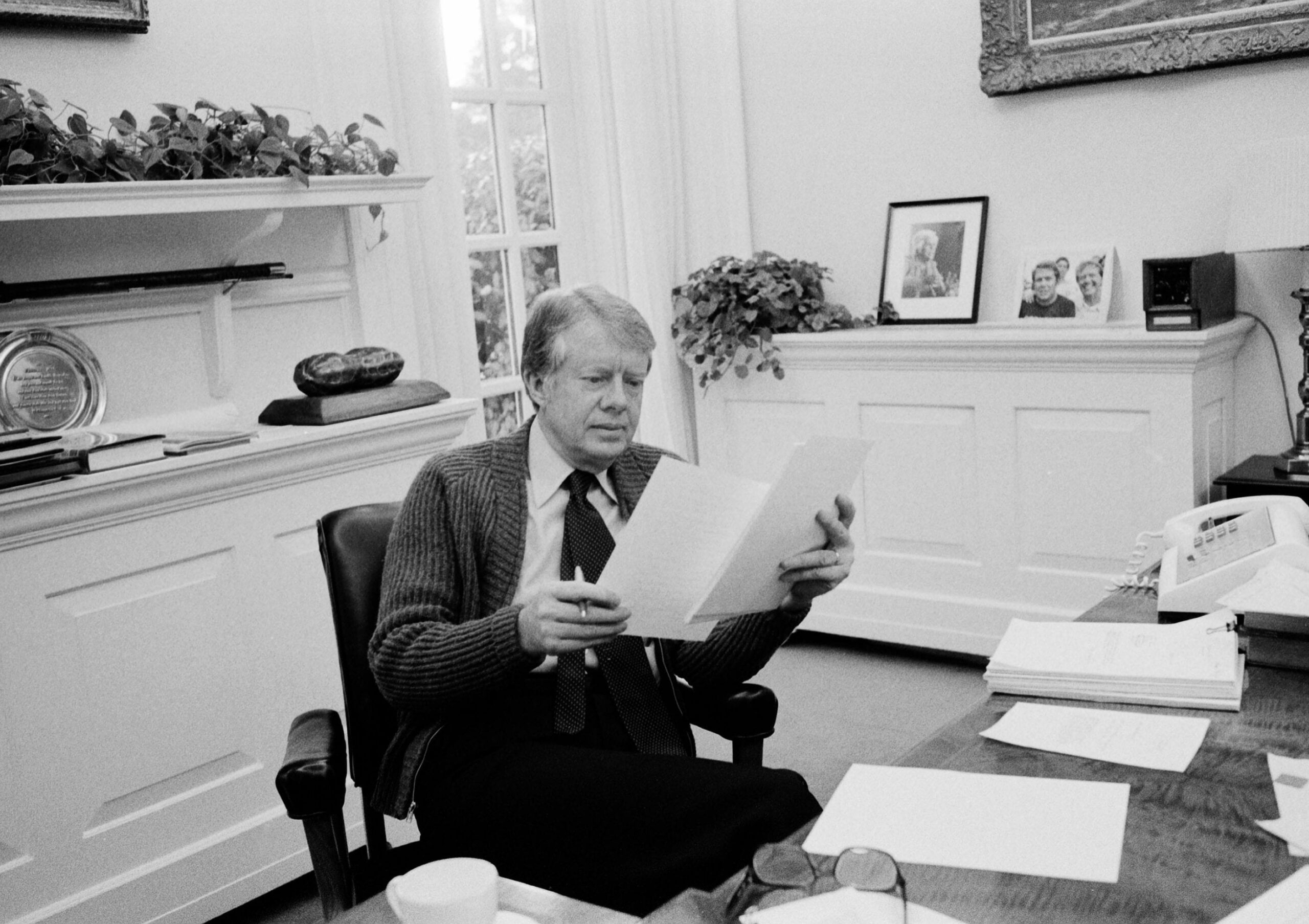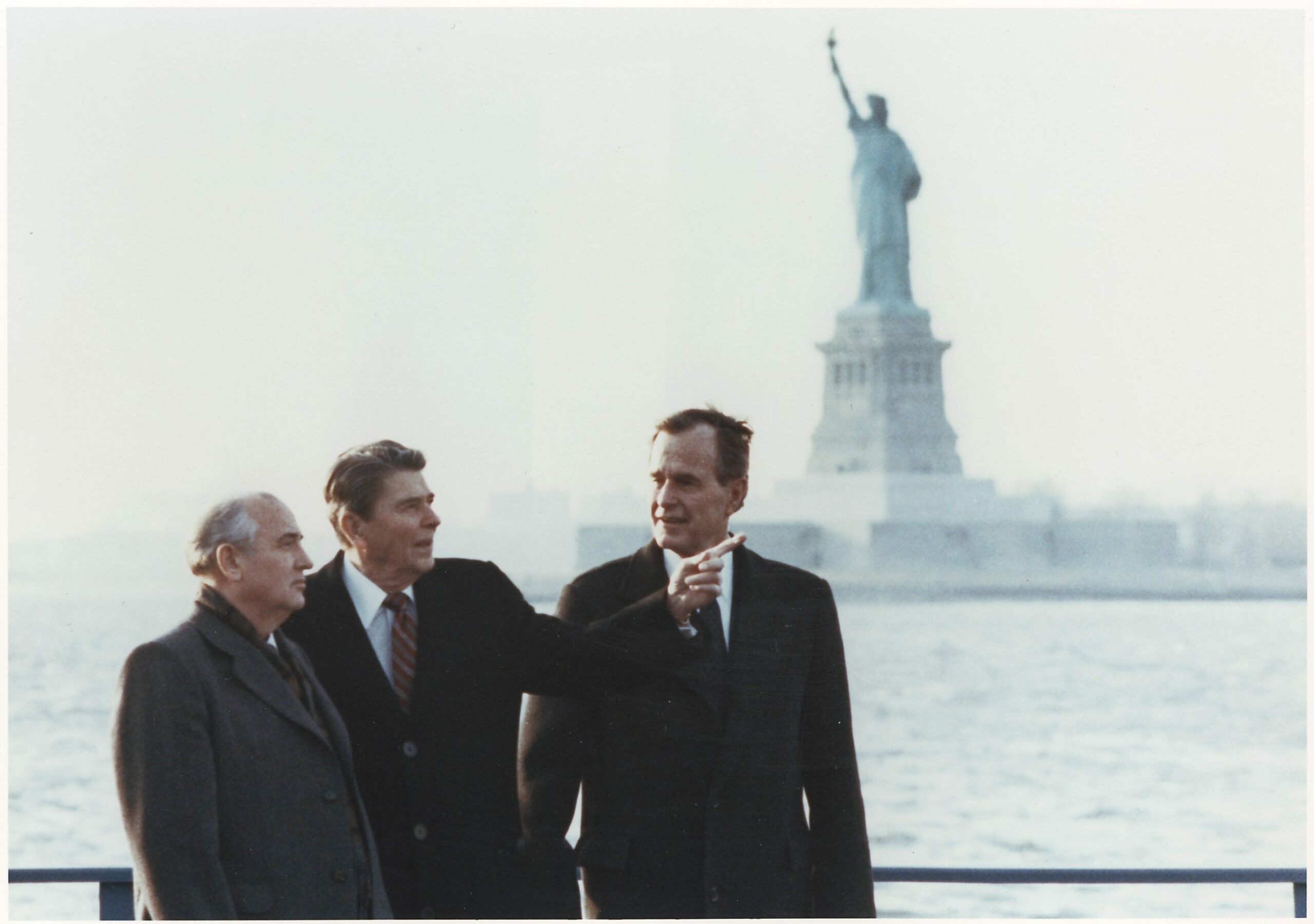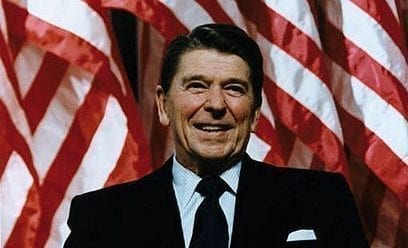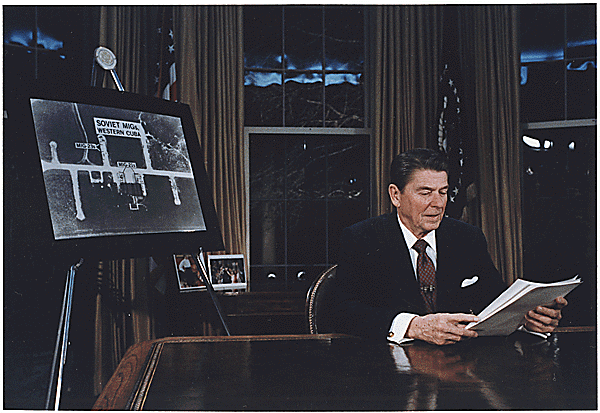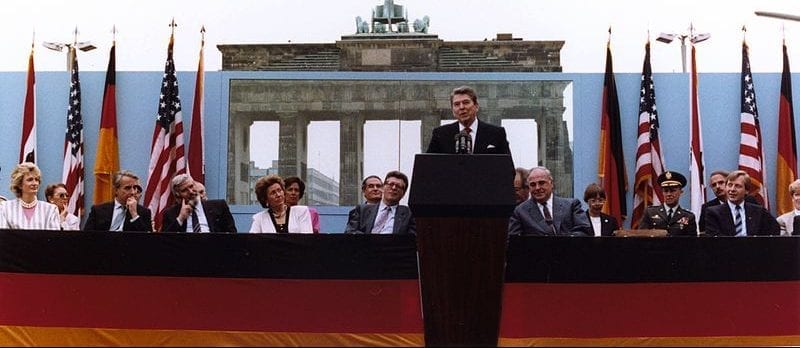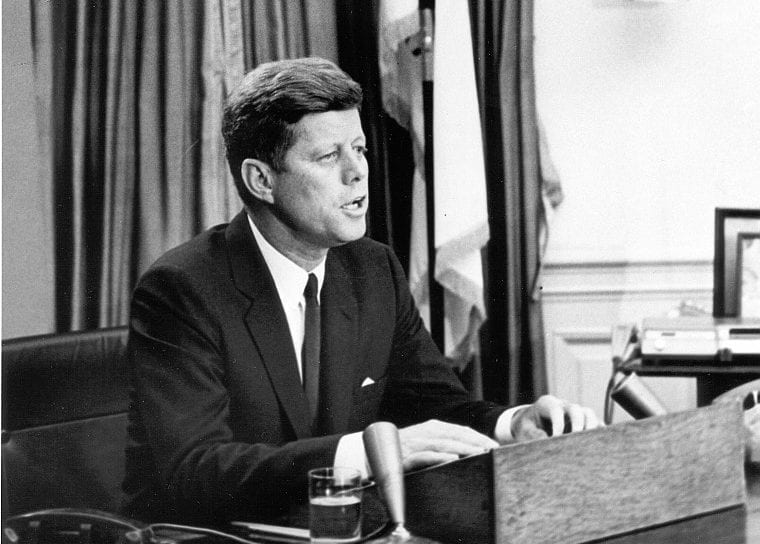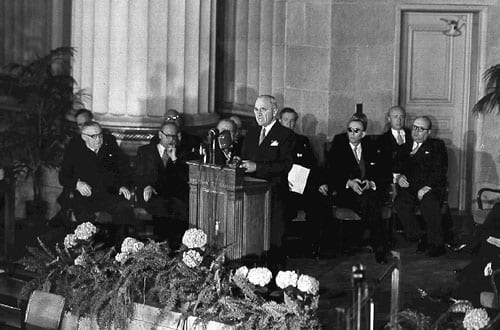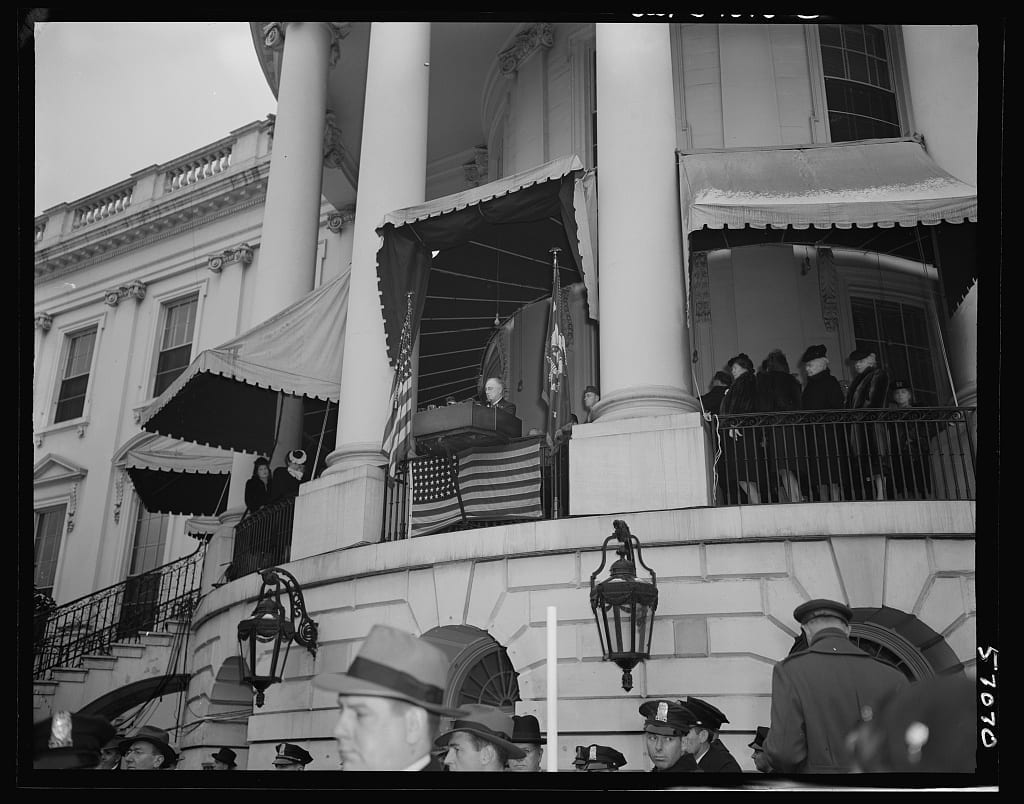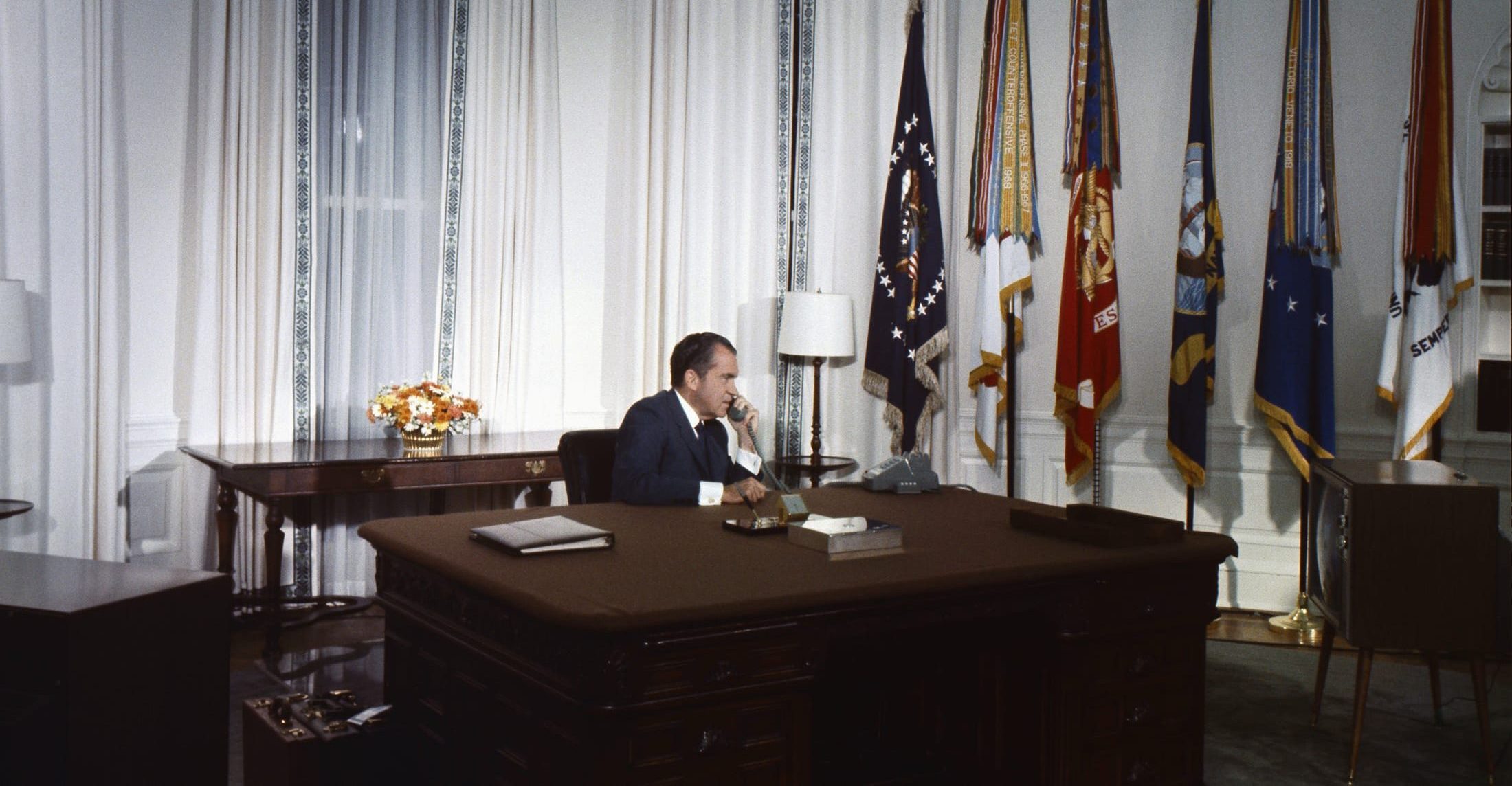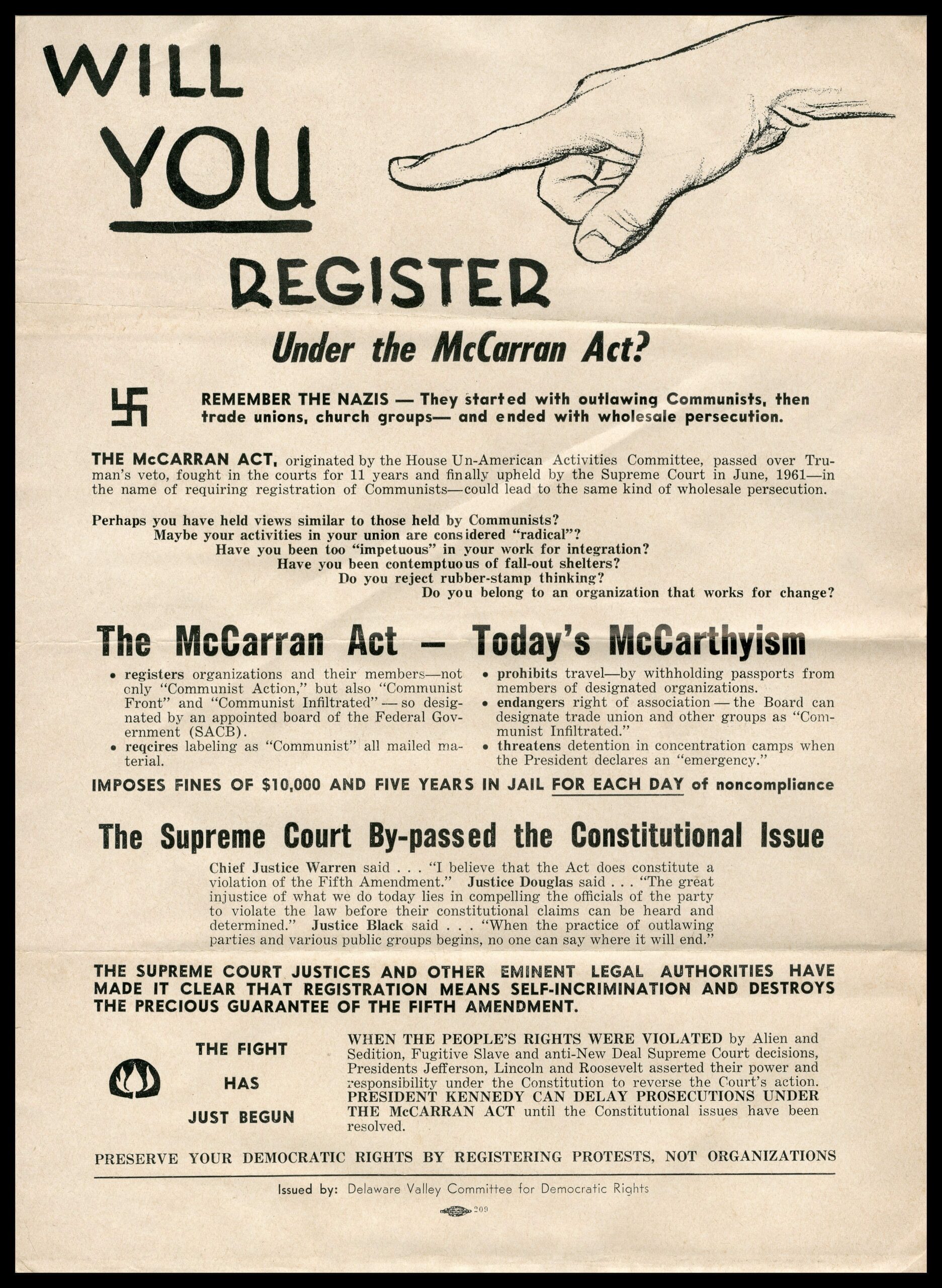
The foreign policy of the United States, which reflects the imperialist tendencies of American monopolistic capital, is characterized in the postwar period by a striving for world supremacy. This is the real meaning of the many statements by President Truman and other representatives of American ruling circles; that the United States has the right to lead the world. All the forces of American diplomacy—the army, the air force, the navy, industry, and science—are enlisted in the service of this foreign policy. For this purpose broad plans for expansion have been developed and are being implemented through diplomacy and the establishment of a system of naval and air bases stretching far beyond the boundaries of the United States, through the arms race, and through the creation of ever newer types of weapons.
1a) The foreign policy of the United States is conducted now in a situation that differs greatly from the one that existed in the prewar period. This situation does not fully conform to the calculations of those reactionary circles which hoped that during the Second World War they would succeed in avoiding, at least for a long time, the main battles in Europe and Asia. They calculated that the United States of America, if it was unsuccessful in completely avoiding direct participation in the war, would enter it only at the last minute, when it could easily affect the outcome of the war, completely ensuring its interests.
In this regard, it was thought that the main competitors of the United States would be crushed or greatly weakened in the war, and the United States by virtue of this circumstance would assume the role of the most powerful factor in resolving the fundamental questions of the postwar world. These calculations were also based on the assumption, which was very widespread in the United States in the initial stages of the war, that the Soviet Union, which had been subjected to the attack of German Fascism in June 1941, would also be exhausted or even completely destroyed as a result of the war.
Reality did not bear out the calculations of the American imperialists.
b) The two main aggressive powers, fascist Germany and militarist Japan, which were at the same time the main competitors of the United States in both the economic and foreign policy fields, were thoroughly defeated. The third great power, Great Britain, which had taken heavy blows during the war, now faces enormous economic and political difficulties. The political foundations of the British Empire were appreciably shaken, and crises arose, for example, in India, Palestine, and Egypt.
Europe has come out of the war with a completely dislocated economy, and the economic devastation that occurred in the course of the war cannot be overcome in a short time. All of the countries of Europe and Asia are experiencing a colossal need for consumer goods, industrial and transportation equipment, etc. Such a situation provides American monopolistic capital with prospects for enormous shipments of goods and the importation of capital into these countries—a circumstance that would permit it to infiltrate their national economies.
Such a development would mean a serious strengthening of the economic position of the United States in the whole world and would be a stage on the road to world domination by the United States.
c) On the other hand, we have seen a failure of calculations on the part of U.S. circles which assumed that the Soviet Union would be destroyed in the war or would come out of it so weakened that it would be forced to go begging to the United States for economic assistance. Had that happened, they would have been able to dictate conditions permitting the United States to carry out its expansion in Europe and Asia without hindrance from the USSR.
In actuality, despite all of the economic difficulties of the postwar period connected with the enormous losses inflicted by the war and the German fascist occupation, the Soviet Union continues to remain economically independent of the outside world and is rebuilding its national economy with its own forces.
At the same time the USSR’s international position is currently stronger than it was in the prewar period. Thanks to the historical victories of Soviet weapons, the Soviet armed forces are located on the territory of Germany and other formerly hostile countries, thus guaranteeing that these countries will not be used again for an attack on the USSR. In formerly hostile countries, such as Bulgaria, Finland, Hungary, and Romania, democratic reconstruction has established regimes that have undertaken to strengthen and maintain friendly relations with the Soviet Union. In the Slavic countries that were liberated by the Red Army or with its assistance—Poland, Czechoslovakia, and Yugoslavia—democratic regimes have also been established that maintain relations with the Soviet Union on the basis of agreements on friendship and mutual assistance.
The enormous relative weight of the USSR in international affairs in general and in the European countries in particular, the independence of its foreign policy, and the economic and political assistance that it provides to neighboring countries, both allies and former enemies, has led to the growth of the political influence of the Soviet Union in these countries and to the further strengthening of democratic tendencies in them.
Such a situation in Eastern and Southeastern Europe cannot help but be regarded by the American imperialists as an obstacle in the path of the expansionist policy of the United States.
2a) The foreign policy of the United States is not determined at present by the circles in the Democratic Party that (as was the case during Roosevelt’s lifetime) strive to strengthen the cooperation of the three great powers that constituted the basis of the anti-Hitler coalition during the war. The ascendance to power of President Truman, a politically unstable person but with certain conservative tendencies, and the subsequent appointment of (James) Byrnes as Secretary of State meant a strengthening of the influence of U.S. foreign policy of the most reactionary circles of the Democratic party. The constantly increasing reactionary nature of the foreign policy course of the United States, which consequently approached the policy advocated by the Republican party, laid the groundwork for close cooperation in this field between the far right wing of the Democratic party and the Republican party. This cooperation of the two parties, which took shape in both houses of Congress in the form of an unofficial bloc of reactionary Southern Democrats and the old guard of the Republicans headed by (Senator Arthur) Vandenberg and (Senator Robert) Taft, was especially clearly manifested in the essentially identical foreign policy statements issued by figures of both parties. In Congress and at international conferences, where as a rule leading Republicans are represented in the delegations of the United States, the Republicans actively support the foreign policy of the government. This is the source of what is called, even in official statements, “bipartisan” foreign policy.
b) At the same time, there has been a decline in the influence on foreign policy of those who follow Roosevelt’s course for cooperation among peace-loving countries. Such persons in the government, in Congress, and in the leadership of the Democratic party are being pushed farther and farther into the background. The contradictions in the field of foreign policy and existing between the followers of (Henry) Wallace and (Claude) Pepper, on the one hand, and the adherents of the reactionary “bipartisan” policy, on the other, were manifested with great clarity recently in the speech by Wallace that led to his resignation from the post as Secretary of Commerce. Wallace’s resignation means the victory of the reactionary course that Byrnes is conducting in cooperation with Vandenberg and Taft.
3. Obvious indications of the U.S. effort to establish world dominance are also to be found in the increase in military potential in peacetime and in the establishment of a large number of naval and air bases both in the United States and beyond its borders.
In the summer of 1946, for the first time in the history of the country, Congress passed a law on the establishment of a peacetime army, not on a volunteer basis but on the basis of universal military service. The size of the army, which is supposed to amount to about one million persons as of July 1, 1947, was also increased significantly. The size of the navy at the conclusion of the war decreased quite insignificantly in comparison with wartime. At the present time, the American navy occupies first place in the world, leaving England’s navy far behind, to say nothing of those of other countries.
Expenditures on the army and navy have risen colossally, amounting to $13 billion according to the budget for 1946-47 (about 40 percent of the total budget of $36 billion). This is more than 10 times greater than corresponding expenditures in the budget for 1938, which did not amount to even $1 billion.
Along with maintaining a large army, navy, and air force, the budget provides that these enormous amounts also will be spent on establishing a very extensive system of naval and air bases in the Atlantic and Pacific oceans. According to existing official plans, in the course of the next few years 228 bases, points of support, and radio stations are to be constructed in the Atlantic Ocean and 258 in the Pacific. A large number of these bases and points of support are located outside the boundaries of the United States. In the Atlantic Ocean bases exist or are under construction in the following foreign island territories: Newfoundland, Iceland, Cuba, Trinidad, Bermuda, the Bahamas, the Azores, and many others; in the Pacific Ocean: former Japanese mandated territories—the Marianas, Caroline and Marshall Islands, Bonin, Ryukyu, Philippines, and the Galapagos Islands (they belong to Ecuador).
The establishment of American bases on islands that are often 10,000 to 12,000 kilometers from the territory of the United States and are on the other side of the Atlantic and Pacific oceans clearly indicates the offensive nature of the strategic concepts of the commands of the U.S. army and navy. This interpretation is also confirmed by the fact that the American navy is intensively studying the naval approaches to the boundaries of Europe. For this purpose American naval vessels in the course of 1946 visited the ports of Norway, Denmark, Sweden, Turkey, and Greece. In addition, the American navy is constantly operating in the Mediterranean Sea.
All of these facts show clearly that a decisive role in the realization of plans for world dominance by the United States is played by its armed forces.
4a) One of the stages in the achievement of dominance over the world by the United States is its understanding with England concerning the partial division of the world on the basis of mutual concessions. The basic lines of the secret agreement between the United States and England regarding the division of the world consist, as shown by facts, in their agreement on the inclusion of Japan and China in the sphere of influence of the United States in the Far East, while the United States, for its part, has agreed not to hinder England either in resolving the Indian problem or in strengthening its influence in Siam and Indonesia.
b) In connection with this division, the United States at the present time is in control of China and Japan without any interference from England.
The American policy in China is striving for the complete economic and political submission of China to the control of American monopolistic capital. Following this policy, the American government does not shrink even from interference in the internal affairs of China. At the present time in China, there are more than 50,000 American soldiers. In a number of cases, American Marines participated directly in military operations against the people’s liberation forces. The so-called “mediation” mission of General (George) Marshall is only a cover for interference in the internal affairs of China.
How far the policy of the American government has gone with regard to China is indicated by the fact that at present it is striving to effect control over China’s army. Recently, the U.S. administration submitted to Congress a bill on military assistance to China that provided for the complete reorganization of the Chinese army, its training with the aid of U.S. military instructors and its supply with American weapons and equipment. For the purpose of carrying out this program in China, an American consultative mission including army and naval officers would be sent to China.
China is gradually being transformed into a bridgehead for the American armed forces. American air bases are located all over its territory. The main ones are found in Peking, Tsingtao, Tientsin, Nanking, Shanghai, Chendu, Chungking, and Kunming. The main American naval base in China is located in Tsingtao. The headquarters of the 7th Fleet is also there. In addition more than 30,000 U.S. Marines are concentrated in Tsingtao and its environs. The measures carried out in northern China by the American army show that it intends to stay there for a long time.
In Japan, despite the presence there of only a small contingent of American troops, control is in the hands of the Americans. Although English capital has substantial interests in the Japanese economy, English foreign policy toward Japan is conducted in such a way as not to hinder the Americans from carrying out their penetration of the Japanese national economy and subordinating it to their influence. In the Far Eastern Commission in Washington and in the Allied Council in Tokyo, the English representatives as a rule make common cause with the U.S. representatives conducting this policy.
Measures taken by the American occupational authorities in the area of domestic policy and intended to support reactionary classes and groups, which the United States plans to use in the struggle against the Soviet Union, also meet with a sympathetic attitude on the part of England.
c) The United States follows a similar line with regard to the English sphere of influence in the Far East. Recently, the United States has ceased the attempts it has made over the past year to influence the resolution of Indian questions. Lately there have been frequent instances in which the reputable American press more or less faithfully reflecting the official policy of the U.S. government, has made positive statements with regard to the English policy in India. American foreign policy also did not hinder British troops in joint action with the Dutch army from suppressing the national liberation movement in Indonesia. Moreover, there have even been instances in which the United States facilitated this British imperialist policy, handing over American weapons and equipment to the English and Dutch troops in Indonesia, sending Dutch naval personnel from the United States to Indonesia, etc.
5a) If the division of the world in the Far East between the United States and England may be considered an accomplished fact, it cannot be said that an analogous situation exists in the basin of the Mediterranean Sea and in the countries adjacent to it. Rather, the facts indicate that an agreement of this sort has not yet been reached in the region of the Near East and the Mediterranean Sea. The difficulty experienced by the United States and England in reaching an agreement over this region derives from the fact that concessions on the part of England to the United States in the Mediterranean basin would be fraught with serious consequences for the whole future of the British Empire, for which the basin has exceptional strategic and economic significance. England would have nothing against using American armed forces and influence in this region, directing them northward against the Soviet Union. The United States, however, is not interested in providing assistance and support to the British Empire in this vulnerable point, but rather in its own more thorough penetration of the Mediterranean basin and Near East, to which the United States is attracted by the area’s natural resources, primarily oil.
b) In recent years American capital has penetrated very intensively into the economy of the Near Eastern countries, in particular into the oil industry. At present there are American oil concessions in all of the Near Eastern countries that have oil deposits (Iraq, Bahrain, Kuwait, Egypt, and Saudi Arabia). American capital, which made its first appearance in the oil industry of the Near East, only in 1927, now controls 42 percent of all proven reserves in the Near East, excluding Iran. Of the total proven reserves of 26.8 billion barrels, over 11 billion barrels are owned by U.S. concessions. Striving to ensure further development of their concessions in different countries (which are often very large—Saudi Arabia, for example), the American oil companies plan to build a trans-Arabian pipeline to transport oil from the American concession in Saudi Arabia and in other countries on the southeastern shore of the Mediterranean Sea to ports in Palestine and Egypt.
In expanding in the Near East, American capital has English capital as its greatest and most stubborn competitor. The fierce competition between them is the chief factor preventing England and the United States from reaching an understanding on the division of spheres of influence in the Near East, a division of that can occur only at the expense of direct British interests in this region.
Palestine is an example of the very acute contradictions in the policy of the United States and England in the Near East. The United States has been displaying great initiative there of late, creating many difficulties for England, as in the case of the U.S. demand that 100,000 Jews from Europe be permitted to enter Palestine. The American interest in Palestine, outwardly expressed as sympathy for the Zionist cause, actually only signifies that American capital wishes to interfere in Palestinian affairs and thus penetrate the economy. The selection of a port in Palestine as one of the terminal points of the American oil pipeline explains a great deal regarding the foreign policy of the United States on the Palestine question.
c) The irregular nature of relations between England and the United States in the Near East is manifested in part also in the great activity of the American naval fleet in the eastern part of the Mediterranean Sea. Such activity cannot help but be in conflict with the basic interests of the British Empire. These actions on the part of the U.S. fleet undoubtedly are also linked with American oil and other economic interests in the Near East.
It must be kept in mind, however, that incidents such as the visit by the American battleship Missouri to the Black Sea straits, the visit of the American fleet to Greece, and the great interest that U.S. diplomacy displays in the problem of the straits have a double meaning. On the one hand, they indicate that the United States has decided to consolidate its position in the Mediterranean basin to support its interests in the countries of the Near East and that it has selected the navy as the tool for this policy. On the other hand, these incidents constitute a political and military demonstration against the Soviet Union. The strengthening of U.S. positions in the Near East and the establishment of conditions for basing the American navy at one or more points on the Mediterranean Sea (Trieste, Palestine, Greece, Turkey) will therefore signify the emergence of a new threat to the security of the southern regions of the Soviet Union.
6a) Relations between the United States and England are determined by two basic circumstances. On the one hand, the United States regards England as its greatest potential competitor; on the other hand, England constitutes a possible ally for the United States. Division of certain regions of the globe into spheres of influence of the United States and England would create the opportunity, if not for preventing competition between them, which is impossible, then at least of reducing it. At the same time, such a division facilitates the achievement of economic and political cooperation between them.
b) England needs American credits for reorganizing its economy, which was disrupted by the war. To obtain such credits England is compelled to make significant concessions. This is the significance of the loan that the United States recently granted England. With the aid of the loan, England can strengthen its economy. At the same time this loan opens the door for American capital to penetrate the British Empire. The narrow bounds in which the trade of the so-called Sterling Bloc has found itself in the recent past have expanded at the present time and provide an opportunity for the Americans to trade with British dominions, India, and other countries of the Sterling Bloc (Egypt, Iraq, and Palestine).
c) The political support that the United States provides for England is very often manifested in the international events of the postwar period. At recent international conferences the United States and England have closely coordinated their policies, especially in cases when they had to oppose the policy of the Soviet Union. The United States provided moral and political assistance to England in the latter’s reactionary policy in Greece, India and Indonesia. American and English policy is fully coordinated with regard to the Slavic and other countries adjoining the Soviet Union. The most important demarches of the United States and England in these countries after the end of the war were quite similar and parallel in nature. The policy of the United States and England in the Security Council of the United Nations (particularly in questions concerning Iran, Spain, Greece, the withdrawal of foreign troops from Syria and Lebanon, etc.) has the same features of coordination.
d) The ruling circles of the United States obviously have a sympathetic attitude toward the idea of a military alliance with England, but at the present time the matter has not yet culminated in an official alliance. Churchill’s speech in Fulton calling for the conclusion of an Anglo-American military alliance for the purpose of establishing joint domination over the world was therefore not supported officially by Truman or Byrnes, although Truman by his presence (during the “Iron Curtain” speech) did indirectly sanction Churchill’s appeal.
Even if the United States does not go so far as to conclude a military alliance with England just now, in practice they still maintain very close contact on military questions. The combined Anglo-American headquarters in Washington continues to exist, despite the fact that over a year has passed since the end of the war. Frequent personal contact continues among leading military figures of England and the United States. The recent trip of Field Marshal Montgomery to America is evidence of this contact. It is characteristic that as a result of his meetings with leading military figures of the United States, Montgomery announced that the English army would be structured on the American model. Cooperation is also carried out between the navies of the two countries. In this connection it is sufficient to note the participation of the English navy in recent maneuvers by the American navy in the North Sea in autumn of this year.
e) The current relations between England and the United States, despite the temporary attainment of agreements on very important questions, are plagued with great internal contradictions and can not be lasting.
The economic assistance from the United States conceals within itself a danger for England in many respects. First of all, in accepting the loan, England finds herself in a certain financial dependence on the United States from which it will not be easy to free herself. Second, it should be kept in mind that the conditions created by the loan for the penetration by American capital of the British Empire can entail serious political consequences. The countries included in the British Empire or dependent on it may—under economic pressure from powerful American capital—reorient themselves toward the United States, following in this respect the example of Canada, which more and more is moving away from the influence of England and orienting itself toward the United States. The strengthening of American positions in the Far East could stimulate a similar process in Australia and New Zealand. In the Arabic countries of the Near East, which are striving to emancipate themselves from the British Empire, there are groups within the ruling circles that would not be averse to working out a deal with the United States. It is quite possible that the Near East will become a center of Anglo-American contradictions that will explode the agreements now reached between the United States and England.
7a) The “hard-line” policy with regard to the USSR announced by Byrnes after the rapprochement of the reactionary Democrats with the Republicans is at present the main obstacle on the road to cooperation of the Great Powers. It consists mainly of the fact that in the postwar period the United States no longer follows a policy of strengthening cooperation among the Big Three (or four) but rather has striven to undermine the unity of these countries. The objective has been to impose the will of other countries on the Soviet Union. This is precisely the tenor of the policy of certain countries, which is being carried out with the blessing of the United States, to undermine or completely abolish the principle of the veto in the Security Council of the United Nations. This would give the United States opportunities to form among the Great Powers narrow groupings and blocs directed primarily against the Soviet Union, and thus to split the United Nations. Rejection of the veto by the Great Powers would transform the United Nations into an Anglo-Saxon domain in which the United States would play the leading role.
b) The present policy of the American government with regard to the USSR is also directed at limiting or dislodging the influence of the Soviet Union from neighboring countries. In implementing this policy in former enemy or Allied countries adjacent to the USSR, the United States attempts, at various international conferences or directly in these countries themselves, to support reactionary forces with the purpose of creating obstacles to the process of democratization of these countries. In so doing, it also attempts to secure positions for the penetration of American capital into their economies.

Conversation-based seminars for collegial PD, one-day and multi-day seminars, graduate credit seminars (MA degree), online and in-person.

Our Core Document Collection allows students to read history in the words of those who made it. Available in hard copy and for download.





